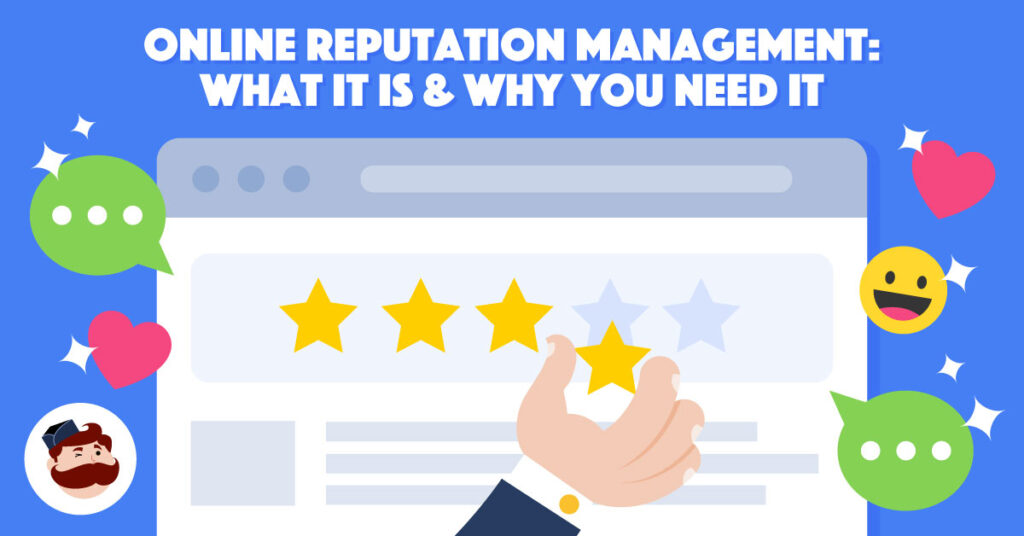Online Reputation Management

Your business works hard to keep your customers happy. You connect with customers one-on-one and tirelessly develop new products and features to meet customers’ needs.
But even with the best customer service, a business is bound to see its reputation take a hit every now and then. A customer posts an angry review for the whole internet to see. Or a less-than-flattering media story spreads far beyond what you expected.
That’s where online reputation management comes in.
Let’s dive in!
What Is Online Reputation Management?
Online reputation management (ORM) is when, in order to address any negative or false comments, you actively monitor mentions of your brand on websites and social media.
ORM mainly works by responding to negative customer comments online and reacting to stories in the media (both social and traditional) that paint your company in a bad light.
For example, you might release a public statement addressing the content of the story or publish a social media post in response.
How Is Reputation Management Different From PR?
Both public relations (PR) and online reputation management have the same goal: portraying the company in the best possible light. The main difference between the two is how they achieve that goal.
PR firms work externally, such as through advertising and coordinated media promotional efforts. It’s mostly a proactive effort to strengthen brands instead of minimizing attacks on companies (though PR firms do sometimes handle damage control).
Online reputation management, on the other hand, is most often reactive. It involves looking for and responding to potentially damaging content from other people or companies.
Most of the work that goes into ORM is handled internally by brands rather than by an external firm.
Why Do You Need to Manage Your Online Reputation?
The hits a brand takes online can be numerous, but they’re often small attacks—a negative comment here, a low star rating there.
None of these blows is worth a full-scale PR campaign, but they add up quickly.
You need online reputation management to take care of each of these little fires before they amount to serious damage.
ORM is also important for maintaining transparency—a vital ingredient of brand loyalty in 2020.
While there is certainly still a place for orchestrated PR campaigns, consumers today are also looking for organic interactions with companies. They want to hear directly from businesses in personalized conversations, such as a direct message or an Instagram comment.
With online reputation management, your business combats negative claims by addressing them dirctly and openly.






